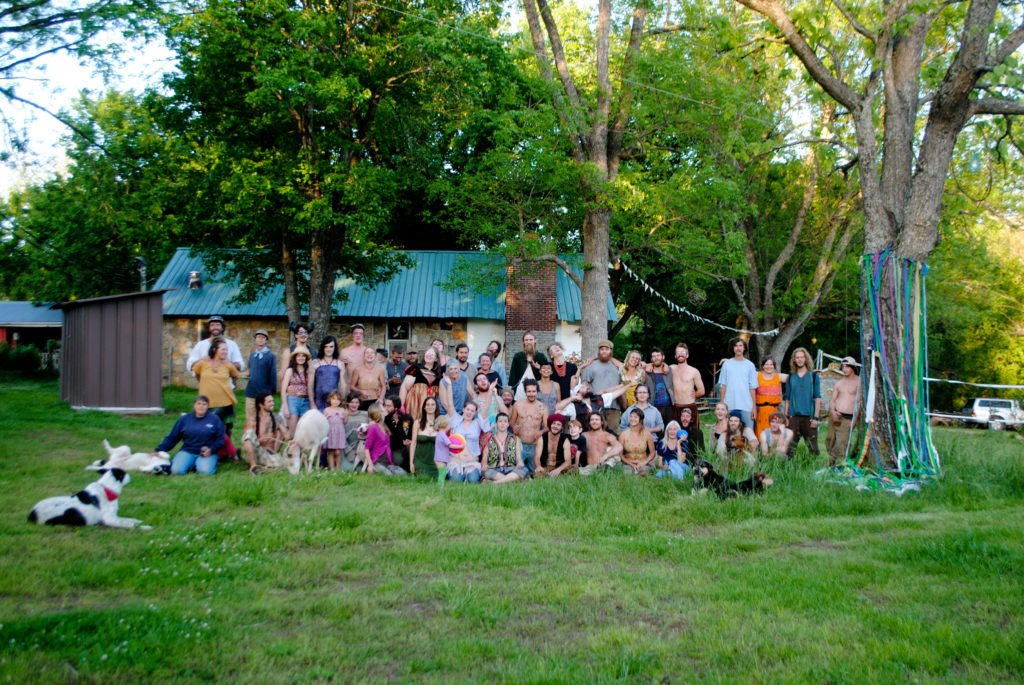
Comptoil
The most immediate difference you may notice at East Wind is that we do not have any flush toilets on our land (the one exception being the regulated bathroom facility for all workers in the nut butter factory which has been required by law). We exclusively do our #2 business in Fillmores and outhouses. Fillmores are simply our word for ‘restroom,’ named after Millard Fillmore, the last US President to not have a flush toilet in the White House. All of the Fillmores are equipped with a sink providing hot and cold water, heat, and plenty of soap and toilet paper. We even sit on toilet seats! The only difference is that instead of polluting potable water with our waste, we drop it into dry buckets filled with peanut skins (a useful ‘waste’ product from our nut butter factory which we also feed to our animals). Peanut skins are also used to cover, or ‘flush,’ in order to control smell and help with the composting process. Within a week most people hardly notice the difference between a toilet seat over a bucket and a toilet seat over a porcelain bowl filled with water.
Comptoil is an important labor area here at East Wind. Everyday, the person who signed up to be the ‘Comptoil’ worker goes around to each Fillmore and collects the buckets of waste and cleans the Fillmores. The buckets collected are taken away and dumped into large boxes (far from everything else!) so that they may compost (we give this process at least three years just to be absolutely safe). This compost is used in our orchards and on our herb garden beds. The various outhouses on the land are for personal shelters and whoever is living at the personal shelter maintains their own outhouse. You can learn more about composting human waste here (NOTE: this is a PDF download).
Dealing with our waste, whether created by our own bodies or by our factory processes, is crucial in maintaining the health of our land. By responsibly taking care of our own poop we are able to prevent water pollution, enrich our own soil, and save money. It is simply straightforward common sense. Being raised with white porcelain toilets all around us, using a composting toilet may seem odd to you. This is understandable, but the differences really are minimal. This practice is a necessity for those who seriously consider their impact on the land around them.
Dealing with our waste, whether created by our own bodies or by our factory processes, is crucial in maintaining the health of our land. By responsibly taking care of our own poop we are able to prevent water pollution, enrich our own soil, and save money. It is simply straightforward common sense. Being raised with white porcelain toilets all around us, using a composting toilet may seem odd to you. This is understandable, but the differences really are minimal. This practice is a necessity for those who seriously consider their impact on the land around them.

